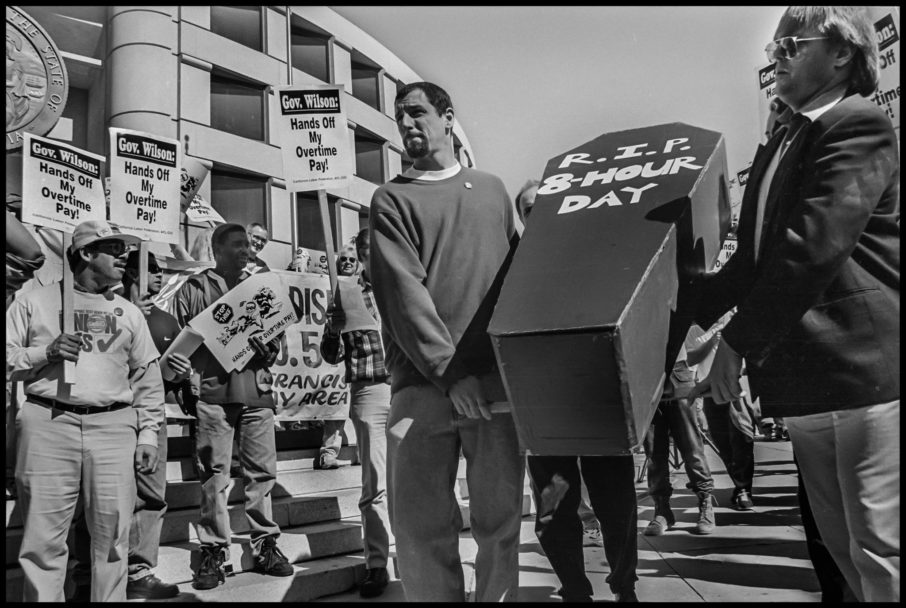Beyond the Grind; A Chinese Undergraduate Succumbs To Gruelling Overwork; From The Call Of 70 Hours A Week; How Overwork Is Killing Workers Instead
Professional life is not easy; the traditional bonds between individuals and organizations have undergone a steep transformation. As the notion of organizational loyalty weakens, the significance of work takes center stage and the measure of it - how much time you spend working! This shift has given rise to a paradox; in seeking recognition as "top talent," individuals today are forced to exhibit their devotion to work, which becomes the price for a coveted label by the rising tide of overwork in contemporary workplaces. Recently, Narayan Murthy sparked a debate over work week after he suggested that people should work for 70 hours a week. During an interview with former Infosys CFO Mohandas Pai, he stressed the need for Indian youth to work for at least 70 hours a week to boost the country's productivity.

The South China Morning Post reported the tragic demise of a overwork(ed) young undergraduate named Li Hao.
The promising student, enrolled in Ping Ding Shan Vocational and Technical College, Henan Province, Central China, succumbed to the relentless demands of multiple live-streaming gaming sessions crammed into a single month, a sign of a promising internee/employee.
Li Hao’s pursuit of internship opportunities led him to a gaming live-streaming position in Zhengzhou, earning a modest monthly salary of 3,000 yuan.
However, the cost proved far greater than anticipated; the reports paint a grim picture of a diligent young soul who, in the pursuit of professional success, found himself entangled in a web of exhaustion and peril instead.
On November 10, tragedy struck abruptly, marking the end of Li Hao’s journey. The grief-stricken father recounts the ominous turn of events that unfolded around 5 pm that fateful day.
Li Hao’s roommate, attuned to the alarming signs, discovered him in a state of distress — rapid breaths and an unresponsive form and despite the desperate efforts of an ambulance and CPR under medical guidance, they couldn’t salvage the young gamer’s life.
The sorrowful narrative intensifies as it unfolds that between October 15 and November 10, Li Hao embarked on an astounding 89 live-streaming sessions. The gravity of his commitment escalated after November 5, as he persisted in overnight sessions, culminating in a harrowing 9 pm to 6 am shift on the eve of his passing — his fifth consecutive overnight endeavour.
In the aftermath of this devastating loss, the employer, rather than shouldering responsibility, has callously extended a mere 5000 yuan or Rs 58,750 to the grieving family under the guise of humanitarian concern.
This gesture, widely condemned as inadequate compensation, has ignited a fierce backlash against the company on social media. The once-promising aspirations of a young gamer now stand eclipsed by a dark cloud of corporate negligence and a life cut short in the relentless pursuit of professional success.
Is Overworking Taking a Toll on Your Well-being?
The topic of overwork often brings to mind personal stories of professionals grappling with the consequences of excessive work hours; I, for one, can vouch for it.
Many have faced a challenging period after losing out on promotions and even being marked as ‘bad performer’ due to a disagreement with the company’s bosses over being seen in office well after working hours.
Knowing this ‘little secret’ and having given in often resulted in complete exhaustion and falling into an experience that reflects a common sentiment among managers who unexpectedly find themselves detached from their professional roles.
I started having nightmares of ‘death’, often waking up in a sweat and counting the shortfall in ‘targets’ and how I would go about achieving the same while being seen in the office putting in ‘extra hours’.
The emotional impact, illustrated by the possibility of losing the job unexpectedly and the subsequent sense of grief, may resonate with many who may have faced similar situations.
Not being identified as a workaholic by the senior management and being confronted with the same time and time again led to questions of not being ‘good enough’ and comparisons with other peers.
Hence, notable instances in corporate culture, such as Steve Balmer bidding farewell to Microsoft with the theme song from “Dirty Dancing” or controversies surrounding Amazon’s work environment, have sparked widespread debates on the current state of professional work.
These discussions often center on whether individual aspirations, organizational cultures, or a combination of both contribute to the pervasive issue of overwork in various sectors.

It’s not merely the sensational aspects of these stories that captivate the public but their relatability. They serve as narratives that bring the reality of workplaces to life in our minds, offering a tangible representation of the challenges many face in their professional lives.
In response to criticism of Amazon’s work culture, CEO Jeff Bezos contended that the company’s environment is attractive to those who willingly embrace it and that employees have the freedom to choose where they work.
This perspective echoes a common argument that individuals who thrive in demanding work cultures actively seek out such environments, while those who don’t can pursue alternatives.
Despite the allure of solving significant problems, learning, and pushing boundaries, research indicates that prolonged working hours can adversely affect health, productivity, and familial relationships.
Studies even suggest that overwork may be a factor in as many as 120,000 deaths annually. Paradoxically, individuals often use tools and policies meant to enhance autonomy to extend their work hours, creating a conflict within themselves.
Given the detrimental impact of overwork on both personal well-being and organizational effectiveness, the question arises-
Why do individuals persist in this behaviour?
To answer this question, it is essential to look beyond personal ambitions and corporate incentives, examining the overwork culture itself!

The Evolving Dynamics Of Work And Identity
In recent decades, the traditional bonds between individuals and organizations have weakened, ushering in an era of increased uncertainty for all workers and newfound freedom for a select few.
While organizational significance arguably diminishes, the importance of work has surged, both economically and psychologically. The emphasis has shifted from being defined by organizational affiliations to being recognized for individual talent and abilities.
Hence, this paradigm shift, commitment to work is no longer merely a byproduct of organizational loyalty; instead, it manifests as an expression to secure commitment by conferring the coveted label of “top talent” in return.
This label, viewed as a golden ticket in a mobile job market, has become increasingly valuable, and devotion to overwork is the price for possessing such a label.
This shift toward a more personal connection with work is reinforced by the current preoccupation with concepts like passion, authenticity, and meaning in popular management literature. This evolving relationship with work not only renders it more fulfilling but also exposes individuals to heightened vulnerability.
In an age where talent, passion, and authenticity are celebrated as virtues and remedies for workplace uncertainties, so-called overwork may emerge as their darker counterpart. As we embrace a more romanticized relationship with work, it is unsurprising that it poses threats to our families, productivity, and health. The question of when work is deemed “enough” remains elusive.

The common response is that workers themselves can influence corporate cultures by voting with their feet moving to more favourable environments. Many young professionals, in particular, view intense workplaces with extreme work cultures as temporary stepping stones rather than long-term commitments.
These experiences are seen as intense training grounds, preparing individuals for diverse circumstances, and not meant to be enduring. Despite the financial rewards, research suggests that individuals choose these companies early in their careers not solely for monetary reasons but for the future opportunities they may offer.
These early career experiences are not mere trade-offs; they shape individuals’ identities and work ethics, influencing working cultures and leaving a lasting impact, and those who can outshine in these gruelling roles are the ones who climb the corporate ladder and have shinier ‘LinkedIn profiles.

Ambition, Exhaustion And Professional Death
In the dance between ambition and exhaustion, the perils of overworking cast a long and foreboding shadow over the modern professional landscape.
The narratives of passion turning into obsession and talent ravaging the soul, reminiscent of the struggles faced by iconic figures like Kurt Cobain and everyday managers alike, compel us to confront the tangible consequences of relentless dedication.
As we traverse a terrain where the pursuit of passion intertwines with the demand for perpetual productivity, a pertinent question echoes –
At what cost do we tether our identities to work?
The dangers lie not only in the physical toll on health and the strain on familial bonds but also in the subtle erosion of the parts of ourselves not intricately tied to our professional roles.
Overworking, therefore, becomes a matter of life and death—not solely in the literal sense but in the symbolic demise of facets of our existence outside the realms of work.
The quest for virtuous authenticity in every professional endeavor risks rendering us authentically drained, leaving us vulnerable in the wake of our relentless pursuits.
The Last Bit, To break free from the clutches of overworking, a recalibration of values is imperative.
The celebration of extreme work cultures as the epitome of talent must yield to a more holistic understanding of success—one that includes personal well-being, genuine connections, and a life beyond the confines of work.
And until this paradigm shift occurs, the perils of overworking will continue to cast a dark cloud, challenging the very essence of a balanced and fulfilling existence in the professional realm.




